The Right Machinery With the Right Partner - PODCAST TRANSCRIPT
July 8, 2025 at 2:00 p.m.Editor's note: The following is the transcript of a live interview with MetalForming’s President and CEO, Stephen Gosk. You can read the interview below, listen to the podcast or watch the recording.
Intro: At MetalForming, our mission is to empower our clients with the best technology in the industry. We believe in continuous innovation and unparalleled customer support while offering a full line of metal forming machines that meet the needs for all business sizes. As we sit in the space between the customer and the suppliers, we're challenged to influence our suppliers' product roadmaps with innovation that best serves the market while we focus on best serving our customers with value and support that surpasses our competition. My name is Steve Gosk, I'm the president of MetalForming.
First question we typically will ask is what do you do today? And what do you want to do five years from now? Again, these machines are major investments, so they're making investments in this machine and these machines last 20-plus years. So it's really important for us to understand where that customer is going, what they want to do with the machine, what their aspirations are for their business. We put them in the right technology and then help them apply that technology to set them apart in the markets that they serve.
Chad Rowe: I'm Chad Rowe with MetalForming and here I am the business development director. Having been with MetalForming for over 25 years, I know that we're constantly pushing the boundaries of what's possible in metal forming and bending. Our team is focused on creating solutions that meet the evolving needs of all of our customers.
David Prokop: I'm David Prokop, I'm the Executive Vice President of MetalForming. I handle the precision side of sales. Flexibility, efficiency and precision are at the core of everything we do. Our machines are engineered to provide our clients the highest level of flexibility, delivering consistent results, reducing downtime and increasing productivity. We offer European precision and quality that no one else can match.
Martin Konig: Martin Konig, the Executive Vice President of Operations. Customer service, field service and refurbished services are the backbone of the MetalForming experience, the process of training and qualifying service technicians. Whether at headquarters or in remote locations near customers, we are focused on factory training and helping our customer experience success.
Heidi Ellsworth: Hello and welcome to this month's lunch and learn from Roofer's Coffee Shop. My name is Heidi Ellsworth and we are here to really learn more about metal forming, metal bending, sheet metal, all the important things that go into your metal roofing and metal siding. We are with the experts from MetalForming. Very excited today to be with Stephen Gosk. Good morning, Stephen.
Stephen Gosk: Good morning, Heidi. Good to be with you.
Heidi Ellsworth: Good to be with you. Thank you so much for joining us. Before we get into introductions, I do want to remind everyone to be sure to download and print out your discussion sheet so that you can take notes during this lunch and learn. And then be sure to take the quiz at the end so that you can get into possibly get a free lunch and, of course, get that certificate of completion.
So let's get going with this lunch and learn and let's start out with an introduction. So Stephen, if you could introduce yourself and tell us a little bit about MetalForming, that would be great.
Stephen Gosk: Sure. My name is Stephen Gosk, the president of MetalForming. Been here now for about three years. MetalForming as an organization's got a proud history in this space of over 28 years. Really the granddaddy of folding, introducing brands like Schechtl and Jorns, which are really almost the Xerox of folding in today's world. But we also have other brands beyond folding and coil processing and roll forming as well. Bringing those products to market and serving the customer base that's out there in need of efficiency and the next-step in level technology and helping them be successful in their world.
Heidi Ellsworth: You and your company make a huge difference to so many contractors and sheet metal shops out there with your expertise and, like you said, just the precision of your machinery that comes in. But today we really want to talk about overall what contractors should be looking at out there, so we have three learning objectives.
The first one is what should sheet metal shops and contractors look for in their metal forming equipment partner? Very important, those relationships. Number two, what are the latest needs and trends for architectural folding? And number three, what's new with roll forming? And in particular, what's new with MetalForming? So perfect. Let's get started, Stephen. You ready?
Stephen Gosk: Yes. We'll cover all those topics today.
Heidi Ellsworth: All of those things. So our first learning objective, what should sheet metal shops and contractors look for in a metal forming equipment partner? Can you start us out on that, Stephen? Just like what should they be looking for? What are the questions that they should be asking?
Stephen Gosk: Yeah. Just to put it very simply, they should find someone that listens, someone who consults and someone who supports them. And I'll take each one of those.
We start every discussion with understanding what that contractor's doing today, what that contractor wants to do five years from now. And talk through the details of the parts that they're bending or folding and their customer base, where they are in the market, questions like that.
Interestingly enough, this past weekend I went to get my oil changed and went into a shop. And when I got to the shop, they looked and today's world can see, even though it wasn't the same shop, my last oil change. And they were good enough to say, "Listen, you're not ready for an oil change yet. So as much as we'll take your money, you go off and we'll see you about 5,000 more miles."
And just using that simple analogy, we're very much the same way. We're not going to put you into a machine that doesn't make sense for your business. We may even tell you to go somewhere else and there may be another technology like a simple press break that better fits what you're doing and what you're doing cost-wise and otherwise.
So we're going to learn about your business, we're going to listen. We're going to listen if you're frustrated, we're going to listen if things don't always work out the way we hope they do. Everybody will have those days and those challenges.
But we'll go down a very consultative path. And to be a good consulting resource in this space, you got to have the people with the history. And as I mentioned, MetalForming's been here for 28 years. We are, I'm very proud to say, a very good mix of people who've been here 20-plus years and people who've come in from the industry more recently who come in with different ideas, thoughts, ways of doing things. So we have a full spectrum of people, not only on the sales side but in the technical services side and the field services side. Again, they've been here for many, many years representing our lines.
And we look for lines that make sense. So as I said earlier, folding, roll forming and coil processing, all particulars that our typical customer base requires. And all that are interacting and interfacing together in the customer's fabrication process. So we have adopted a model here of MetalForming one partner, trusted expert.
The one partner piece is becoming more and more important to our customers because they are relying on the consultative side of things, but also that the equipment they buy works together. So we have a customer coming in tomorrow and the reason they're coming to see us is we can satisfy all of their different equipment needs as MetalForming and then support it after the fact. So there's more and more of that going on.
And then finally, with regard to support, it's on numerous levels. It's that upfront support, but as importantly, the aftermarket support that we offer the customers, both technical support, remote. A lot of the technology that we have in our machines allow us to access the machine remotely, understand what's going on. And in those higher end machines, 90% of the time the problem's solved without a field tech even going there.
And that's the world that we're moving towards is one that is respectful of the customer's investment, one that's understanding of the customer's requirement for uptime and then having all the resources in place to support that and allow us to successfully help them be successful with their end customers. So it's evolving and we are living in a world that people want it immediately, as quick as possible. And that's where we've been a little bit spoiled in this Amazon world we live in. But the truth is is there's really no reason that this industrial space can't become closer to that.
Heidi Ellsworth: Well and one of the things that I love in your philosophy and that I really believe in is really understanding the voice of the customer. Where are they? Where do they living in every day? What are their challenges?
And I think as that customer, you need to make sure you're working with a partner who, your supplier who when you're buying this equipment, who really understands you. So I think that's one of the things as you look at working with your customers, it's really their voice, their roadmap. Maybe just talk a little bit more about that.
Stephen Gosk: So for myself, I came from outside this very incestuous industry and I'm still drinking from the fire hose. But I came with a 20-plus year career with Siemens and during that time had a variety of roles, both sales and operationally. And one of the things Siemens did extremely well was their product roadmapping and their product introduction plans. And through that process, it was a very, very set path of tollgates you go through and it all started with understanding the customer's need.
And during those days, we would do benchmarking with competitors, we would do workshops with customers and develop a marketing spec of what that customer needs, at what price point with what capabilities and such and use that as the basis of the product development. And then it's a balance right between the cost of that machine and what the customer wants. And there is a point where the customer just they're not going to make this exorbitant investment if they don't think they can get a return on it. So you have to find that sweet spot and use that.
And in our world, we sit between that customer and the supplier. And it's our role to understand what those customers want, articulate that back to the suppliers and try our best to influence their product roadmaps in where they go at their next level developments. In some cases and we'll talk later today, in some cases it goes beyond the capabilities of our existing suppliers. And if we see a technology, a need, a void that we can add to our portfolio, we'll seek that out and we'll seek out suppliers that can, I'll say bolt on to what we offer our customers.
And I say bolt on because it has to be a technology that our sales team can understand and absorb and make it be a value add to the customer. And it also has to be a technology that makes sense for our tech services and our field service support that we feel like they can be trained up and it goes well.
It also has to fit with our brands. And our brands are higher end, the best brands I'd like to say in every space of folding, coil processing and roll forming. And they're not the least expensive in many cases, but they last for 20-plus years. And they're ones that are reliable and ones that you can count on to make sure that they perform at a level you would expect.
And then last but not least, these investments that our customers make and I don't care if you're the roofer who got into fabrication, you built a metal building and you bought three machines for $300,000, whatever it might be, to the big high-end fabricator that's a multi-million dollar organization buying million dollars plus equipment. For every one of our customers, it's a big investment. And the investment comes with expectations and we have got to perform at a level that those customers are satisfied.
And again, we're not perfect. So we'll have those instances where we issues come up, but our commitment is take care of it and make it right.
So it's a real fun spot to be in because we do get to go out into the market. We're not limited by one brand. We can seek out those best lines that make the most sense. And at the same time talking to all these customers on the other side, really getting to know their business, understands what they're living with day in and day out.
And for me personally, going out into the field and visiting a customer, those are the best days. It's not always under the best circumstances, quite honestly. Sometimes we get an invite because things aren't going the way they should be, but it just gives us a chance to learn and a chance to listen and a chance to be better. And that's what customers deserve for the money that they're spending. And that's why, back to why we're here today, that's what you should be looking for. And if you're not doing that, you should be looking for someone else.
Heidi Ellsworth: You know what? That's it. And that partnership is so important. But I also want to go on as part of having that right partner, you are also going to be able to learn what's going on to stay in front of it.
Let's go to our second learning objective, which is what are the latest needs and trends for architectural folding? So Stephen, what is hot? What are people looking for?
Stephen Gosk: What's hot and what's always been the underlining principle, if you will, of these machines is people need to be able to make accurate, consistent bends in parts and produce accurate parts and that hasn't changed. And the challenge there becomes as they look to gain efficiencies or gain output speeds, you can't move away from what's at the core. And that's, again, an accurate part that's consistently being produced. So that's not going to go away and we can't lose sight of that.
But at the same time, companies are considering more and more needs around safety and protecting the workers that are out in their shops. And we're seeing that naturally at the bigger companies, all the way back to the smaller organizations where that question's coming out, what is your safety system? What do you offer? And how is that done?
And we live in a litigious world, whether we like it or not and so we have to have a good solution. Fortunately for us, our suppliers, particularly the European-based suppliers, have the best in cutting-edge technology around safety. Because the flip side of safety, particularly in some cases, the operator has to work inside that light curtain, hold it apart. Typically, the machines slow down during that time. The more advanced safety systems can go faster. So you can have your safety without losing the speed of your operation, which is something that customers are looking for.
Also they're looking for that flexibility in the parts they can build with the machines they're buying or the parts they can produce with the machines they're buying. So the more that these machines can produce a wider variety of parts with the same machine, again, it's pretty simple. The customer doesn't want to say yes to these eight parts and go down the street to the other guy for the other two. So it's a pretty simple dynamic that I want to be that all-inclusive provider of parts to our customer. I want to be their one-stop shop. And they need the tooling and flexibility in that tooling to get them there.
And then finally, again, this isn't a new one, but they can't afford the downtime. You want to get on a customer's bad side, impact their planned schedule because they don't have the parts produced to go out to the customer. In fact, again, that's part of why they even buy the machines to begin with. So it's a big deal when they're down.
So the sooner we can get them up and running again and that's where I mentioned earlier, the remote diagnostics all the way to a team of field techs that are available to do that. And in our case, we keep investing it because that's absolutely critical.
And with that, we're seeing more and more people starting to look at that preventive maintenance program or SLA agreement that they have us come out on a regular basis to check the machine out, which in turn, just like getting your oil changed, keeps your valuable equipment running longer. So when we go down that path, that also requires us to have the resources in place in order to do that. And that's something that we're making that investment into.
And probably in my career, one of the most challenging roles to fill is a field service tech. Like a dog walker and a nanny, it's a different person that's willing to travel and be around and be willing to walk into those scenarios that are high anxiety scenarios in often cases because of a machine down that needs to be fixed.
So it really needs to be orchestrated. You need to have the parts there when the service techs there. We need to be working across the organization here and sometimes with our partners in Europe and other places to make sure we get answers. So those are some of the key elements that I see driving the space forward.
And I see, we're an exciting space. Right now, little bit of turmoil in the world, but if you take a look at, in my view, everything from metal roofs being looked at and bad weather areas such as Florida and Texas where there's hurricanes, places where there's fires, you're seeing the insurance companies starting to get into the game of influencing what's on those roofs and what's more sustainable. All the way to just the Chip and Joanna Gaines influence of [inaudible 00:20:09] and the wonderful metal products that are out there today.
And I was at a customer last week that does nothing but the architectural metals on the outside of the buildings, that they're using metals now to give the buildings a look and a feel. And you might want to think great ones, the Audi dealership that has that round metals all on the outside of the building just to give it that modern look and feel.
So we're in a great spot. Hopefully we'll see, love it or hate it, a Big, Beautiful Bill get passed with tax incentives and the 179s continue there for investment. So it's becoming more and more important that we're positioned to best support those needs.
Heidi Ellsworth: Yeah. Well and to your point, what we're seeing with the uses of architectural metal is amazing. From as simple as board and batten profiles to all the different colors and patterns to what you're talking about, really the exterior to the interiors too, Stephen. We're seeing across the board that metal really is becoming the architectural go-to for architects, which then is coming back to the contractors, which is coming back to the sheet metal shops. It's pretty exciting.
Stephen Gosk: Absolutely. Absolutely. So it's a good space to be in. And like everything else in the world, we need to continue to evolve to best support those needs and support that space. And that's a good lead into the next discussion is what kind of products are we seeing that are really needed to do that?
Heidi Ellsworth: Right. Right, so let's do that. Let's go to our third learning objective, which is what's new with role forming and metal forming? So Stephen, take us off because there are so many cool new products that need the sophistication of your machines.
Stephen Gosk: Yeah, so it's going to be a little bit of a teaser. I got to say, we at MetalForming are extremely excited about METALCON coming up this year in Vegas. And we have really, the last few years, adopted really the target to bring to those shows the latest technology and the latest product to bring to our customers to help them be more successful in their space. So you'll see at our booth at METALCON where we're going to be highlighting those product areas. And we actually have one for each of our areas that we get involved with on the coil processing, folding, as well as roll forming side. And we'll tease those out a little different this morning.
But first, a product on coil processing. We introduced the Stolarczyk brand of slitting and cut to length machine now a couple of years ago. And we have now had some successful installations out in the market and they've gone extremely well. And this machine itself is just an incredibly robust slitting machine. The splitter, cut to length machine weighs over 13,000 pounds. It's just a proverbial brick shit house.
And what we find in this space is the needs for that coil processing really vary by customers. So this is where we do talk to that customer, we look at what they require and try to fill in that gap. So this machine has 49 inch max coil width all the way down to 10 inches. It can make eight-inch slits, which is very uncommon to get that small. So it does have a variety of different options available.
The brand itself does offer decoilers, recoilers, stacking cables. So the customers often buy this thing as a complete system. And it has very easily adjustable knives, knife adjustments and distances with a digital readout for that the operator to do and easy knife change. So a variety of things that if the customer doesn't want to get all the way into a automatic knife change machine, for example, with a coil farm, it's a good fit and a good price point for that customer. And really, we see that the real more sophisticated fabricators want to get into that high-end machine.
With that being said, this brand continues to evolve for us and they're moving in that direction of offering automatic knife change and coil farms and so we'll be introducing that shortly. So it really has been a good introduction for us. In my view, it really reflects that customer feedback and building off what we're hearing back from that customer and building off of what their needs are. And part of those needs are speed and so this machine can do 150 foot per minute line speed. So they can operate in that flexibility range of product and offering. So we're excited to continue to introduce new options available with that Stolarczyk machine for coil processing.
Heidi Ellsworth: With what we've seen with the demand in metal, that's also leading to kind of what you just said, obviously, of speed, but there's just a higher demand and a higher sophistication. Tell us a little bit more about that.
Stephen Gosk: Yeah, well, we're seeing more and more people, if possible, in a lot of applications want to run off a coil. It gives them a higher degree of flexibility, a better cost position typically in their operation. So if they can run off coil, slit their own coil to their specific lengths and needs or cut their coil into their specific size, it's very helpful for the flexibility in their manufacturing process. So we're seeing more and more customers interested in those coil processing solutions and then they just go hand in glove right into the folders. And particularly we see it quite often with the long folders, so we see a lot of the coil processing sold with our Jorns brand long folder or other folder needs. So they really go hand in glove and have a lot of synergy within the customer's fabrication process.
Heidi Ellsworth: Yeah, yeah. And those needs are there, like you said, right? That flexibility is so important. So they're going to see, everyone's going to see some really cool new stuff at METALCON, right?
Stephen Gosk: And non-folding as well. So this is a big one and one that you're getting the first exclusive announcement into the market. But you know that we carry the Schroeder brand. And typically, in our world here, historically we've used that brand in what we call the precision market, which is more the industrial higher end fabrication, oftentimes manufacturers using the machines for their own product that they're building. Great example is Viking Appliances wants to bend stainless steel, but they need to make sure it's bent accurately and with no marks because it's a consumer product. They could use a machine like this. All the way to people doing a variety of other products in the data center space and other areas.
But what a lot of people don't know is Schroeder has a complete architectural line as well. So they have an architectural line, a folder and shear that we're going to introduce into the market at METALCON.
And this folder and shear for Schroeder goes hand in glove in their portfolio with the PBM that we've had at the last couple of shows, which is kind of that next step up for the architectural fabricator that, in our experience, has yet to be stumped on a profile, a reasonable profile that it can't do. But it really does have a very, very nice compliment to the baseline 10-foot folder and shear that we're going to have at the show.
And it's called an MAKU, which is the folder and the MHSU as well as the shear. But basically, this is just their core architectural offering. But what this core offering has, it benefits [inaudible 00:29:17] technology that's in their higher end machines. So essentially, it uses the same safety system.
So I mentioned earlier there's a lot of concern with people, once they have to work inside the light curtain, of the speed of the machine. The way the safety system designed and the technology in the safety system itself, the speed is fabulous. So you lose no speed even though you have the safety system being utilized. It has a clamping beam hydraulic hold, so if you're working on the machine, it's safer for the operator. So it has, again, a variety of things in its safety system that mimic the same safety system that's used on their million-dollar machines that they're taking advantage of.
It also uses the same controller that the higher-end machines have. And this controller has that same ability for remote diagnostics. So we're going to be able to offer the customers the ability for someone sitting here in Atlanta, Georgia to go into the machine, take a look at what's happening, take a look at what the history's been and then hopefully come back with a solution that be solved right out in the field. So this is the only architectural folder that's going to have that and it's going to be something that I feel that the customers, if they value those type of capabilities, are really going to be attracted to the machine itself.
With the controller, it does offer an open communication with Bendex Software, which we represent. And this is some of the fabrication software that customers are using for everything from pricing but also production planning in their operations. A lot of interactive manuals right on the screen. So really going to give that customer that next step up in the programmability. You can program from a workstation, goes directly into the machine itself. So a lot of slick technology.
And then finally, in the flexibility side, just the nature of the machine itself, the opening of the machine, the tooling variety that you can get with the machine, it can do a variety of parts, including a four-sided box part, which we hear a lot from customers. So we felt that based on what we hear and see in the market, this machine is going to be a good addition.
It also does have a shear, but a very sophisticated shear. Easy to program CNC control. Again, it does have all the CE safety ratings, so it does have rear guarding and light barriers as well. And then it does offer front or rear return. So when they're sharing metal, even that's programmable. We could have two parts go this way and two parts come this way, depending on which way the customer's fabrication process and space may limit.
So we're excited to continue to offer Schroeder to the US and North American market. We think for the people who are interested in those types of capabilities, it's going to be one that they'll be interested in.
We still represent the Schechtl folder and Schechtl's a fantastic folder as well. It's, again, the Xerox of folding. It's been around forever in this market. And certainly, for trim pieces and things like that, their machine will be a better fit. And all of this ties right back to where we started and that's understanding what's important to the customer, understanding what they're doing with the machine, where they want to go and placing them in the right machine for their particular application use.
Heidi Ellsworth: Wow, that is pretty exciting stuff. Stephen, thank you so much.
Stephen Gosk: I'm not done. I'm not done.
Heidi Ellsworth: You're not done. Okay. Good.
Stephen Gosk: So just so roll forming is not left out and this is going to be a big tease because we're not 100% there yet, but we do see a trend again for people who want to work off coils. We see a lot of customers that are starting to move towards in-plant roll forming, which we do not offer today a full line. But what we see in here in the market is the lead times for these machines are quite long, the price points are quite high and we see an opportunity to offer a solution for our customers that fit their needs.
So you'll be hearing more about this and hopefully we'll be, at METALCON, introducing a new line for us that will do everything from purlins to single, double-deck roofing panels. And this supplier will be a quality manufacturer, much like our other suppliers and will fall right in line with our ability to support it in this market. So METALCON can't get here soon enough and we're very excited to offer all of these new options to the suppliers in the space and continue to do so to try to find those best solutions for the customer's needs.
Heidi Ellsworth: Yeah, you're meeting the demand because we see the demand in metal buildings, in metal roofing, siding, decking, you name it. And these are the type of machines that are going to make it possible for the industry to produce them safely. I love that. I love and I hope everybody got as we look through how important safety is, but also speed and great finished products.
Stephen Gosk: Yeah. So we continue to take this mission and kind of the basis of where we started a few years back. But in fairness, you heard me say before, a company shouldn't forget why it was born. And really, that aligns just where MetalForming started in this industry 28 years ago. It was started because there was a market need. And back in that day, Geoff Stone went out and Jorns and Schechtl and found brands that met that need and introduced it into the market and supported that need. Not just found a machine and said, "Here you go."
We're much more than just a reseller. We're here to support the machine, we're here for our customers. Again, these machines last 20 plus years. So we continue to support the machines as they're out there in the market. And really, what we just talked about this morning kind of goes right back to that initial vision and mission for the company of finding solutions to best serve the customer and we're continuing to drive forward with that mission.
Heidi Ellsworth: Thank you. This has been, talk about a lunch and learn where you really, I've learned so much today. I'm really excited for the future. I encourage everyone to think about attending METALCON to see this in person. That is going to be the highlight of the show. So Stephen, thank you so much for your time today and for really the great information for this lunch and learn.
Stephen Gosk: Thank you. It's always great to be with you.
Outro: Thank you so much. And thank you all for listening. Please be sure to have a great discussion, first of all, over your lunch. And then go online and take the quiz so that you can get a certificate of completion and get entered in to possibly get a free lunch from the Coffee Shops.
Thank you again. Please check out all of our lunch and learns underneath the RLW navigation. And also be sure to listen to them where you can find... Let me start that over again, sorry. Be sure to listen to all of our lunch and learns under the RLW navigation. We will be seeing you next time on RoofersCoffeeShop Lunch & Learn.
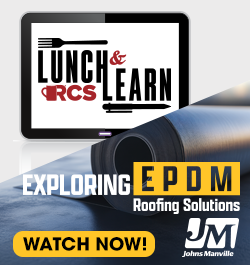
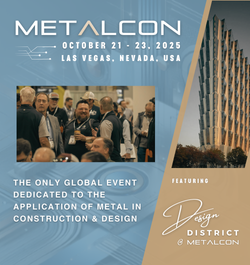

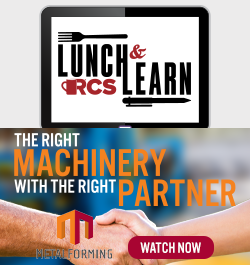

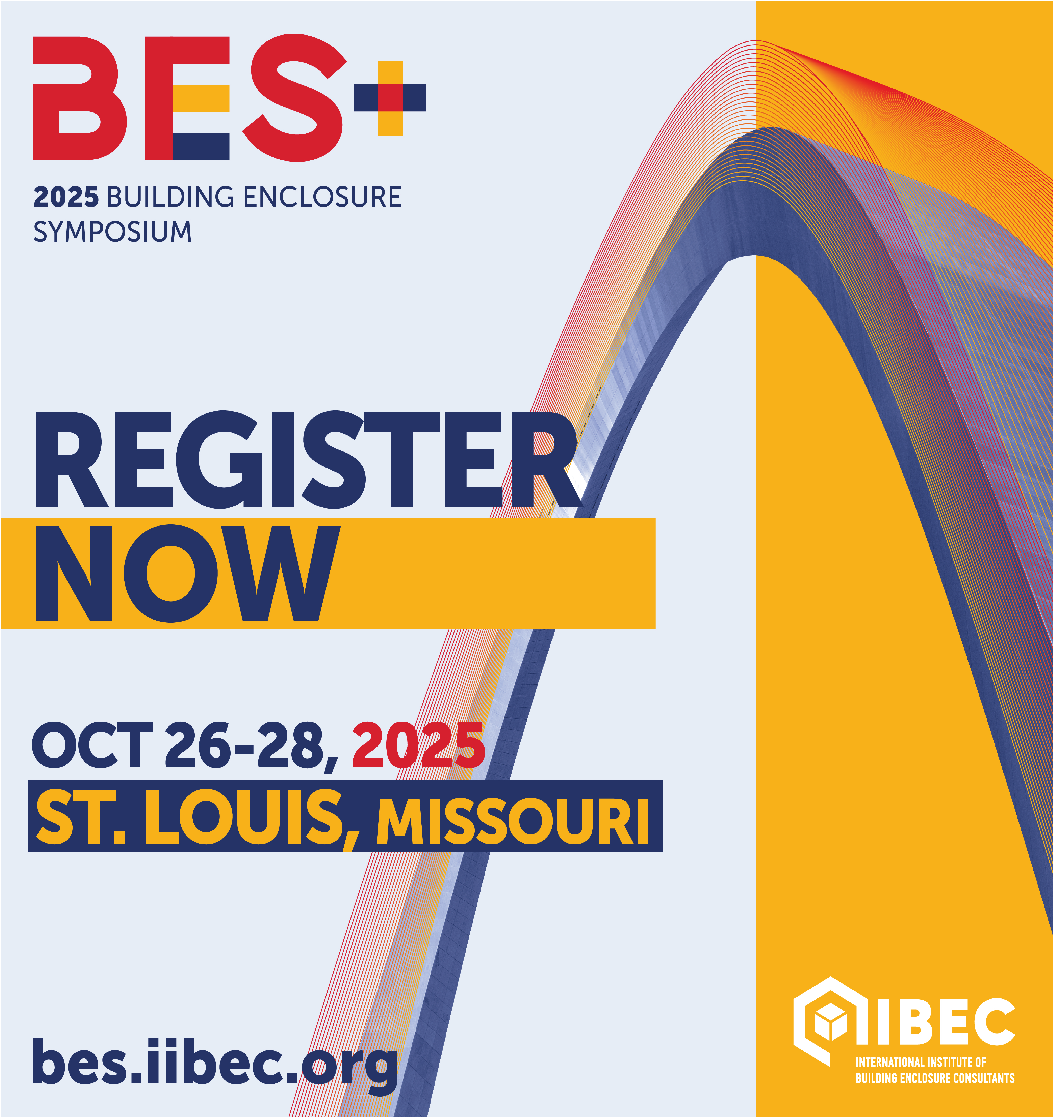

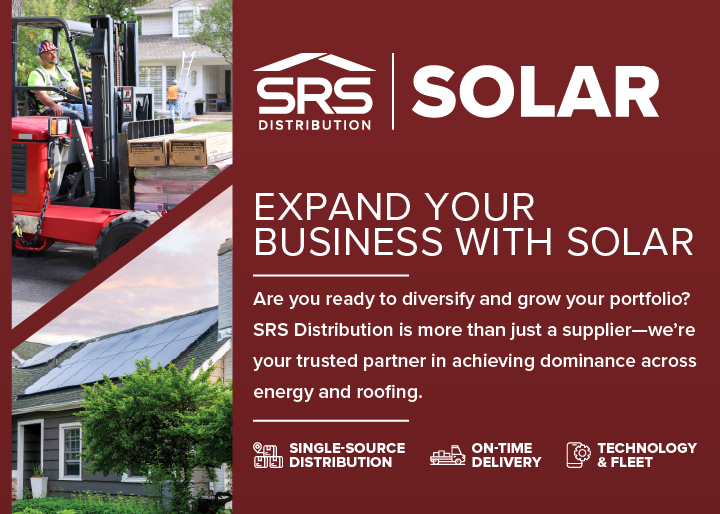





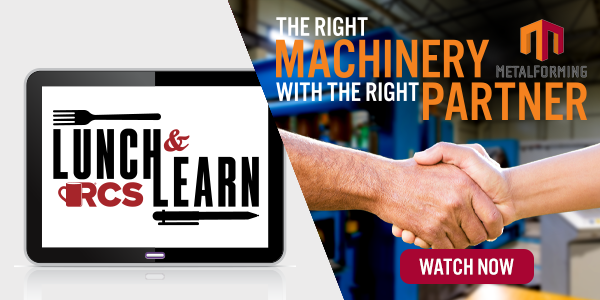
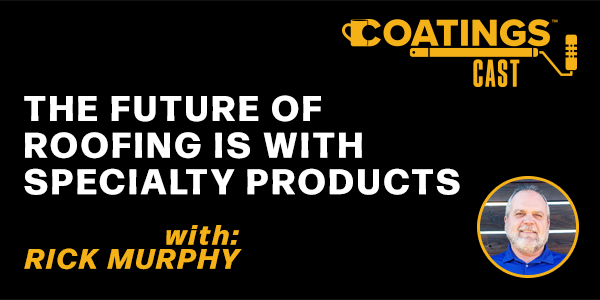
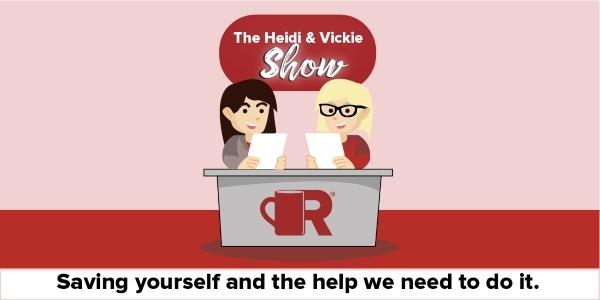
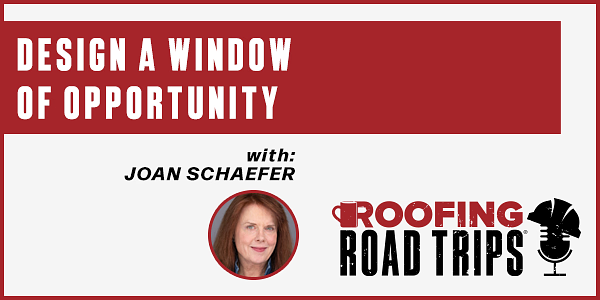

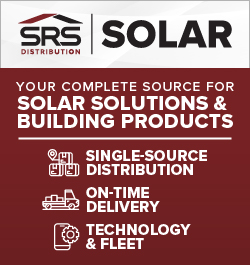
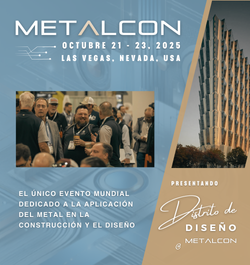
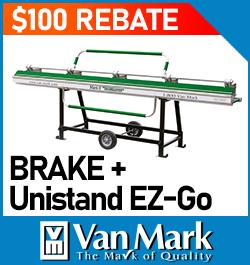

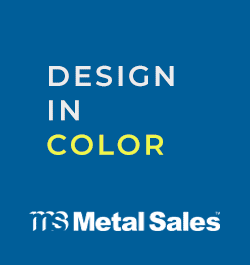

Comments
Leave a Reply
Have an account? Login to leave a comment!
Sign In